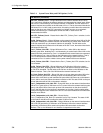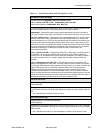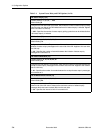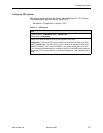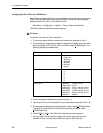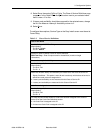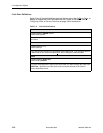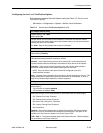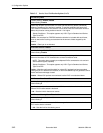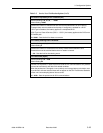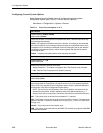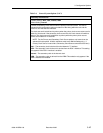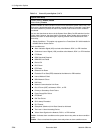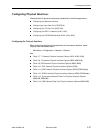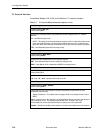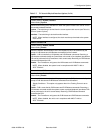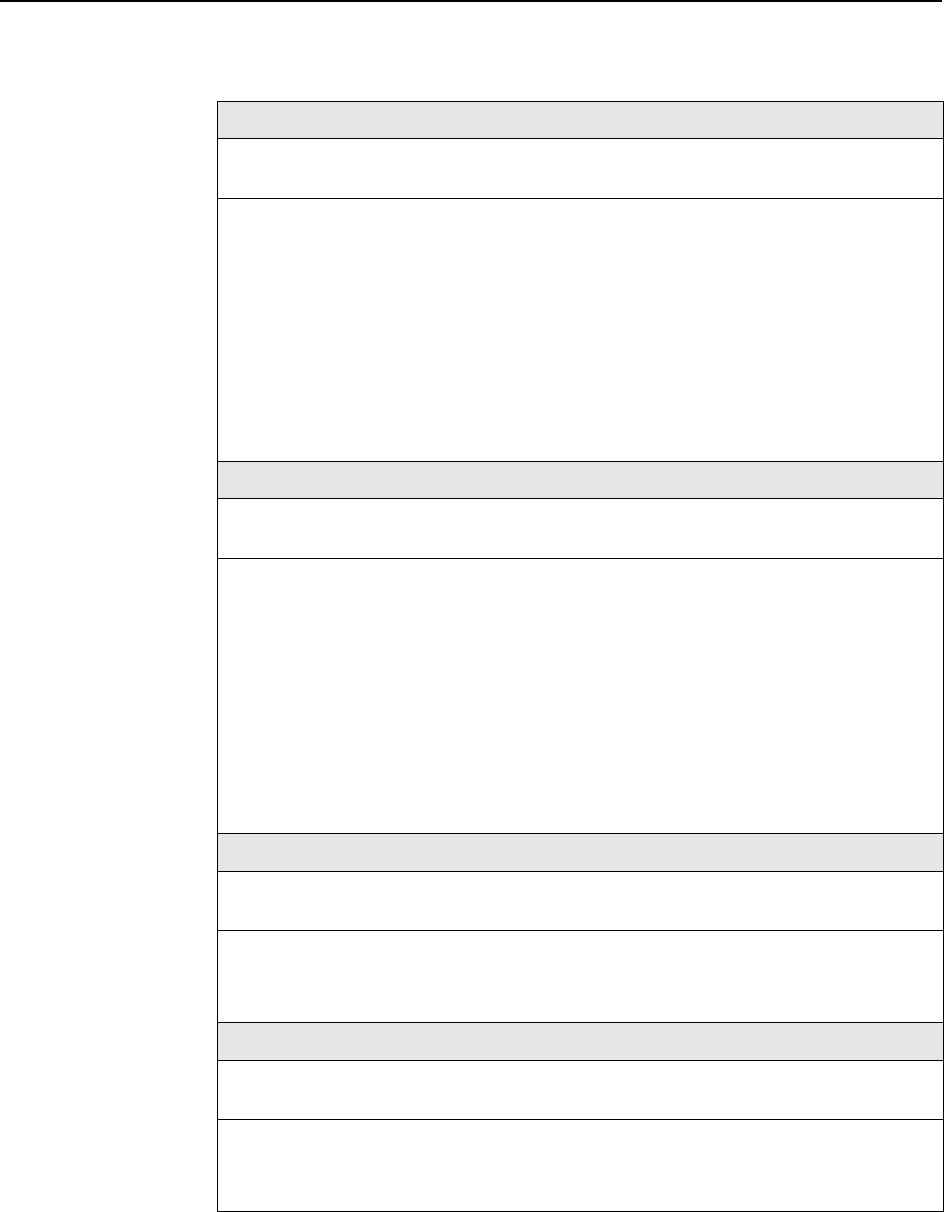
3. Configuration Options
3-12 December 2002 9000-A2-GB31-00
SLV Delivery Ratio
Possible Settings: Enable, Disable
Default Setting: Disable
Determines whether communication of Frame and Data Delivery Ratios (FDR/DDR)
between FrameSaver SLV devices is enabled. To use this capability, both ends of all
PVCs must be FrameSaver SLV devices. If some of the units are FrameSaver 9124s or
9624s, they must be running software version 1.2 or higher.
Display Conditions – This option appears only if SLV Type is Standard and Service
Type is not PPP.
Enable – An extra byte for FDR/DDR statistics collection is included with each frame,
which is used at the receiving end to determine the amount of data dropped by the
network.
Disable – Extra byte is not included.
DLCI Down on SLV Timeout
Available Settings: Enable, Disable
Default Setting: Disable
Determines whether missed SLV packets will be monitored along with the LMI status to
determine the status of PVC connections to remote FrameSaver units.
NOTE: This option does not apply to multiplexed DLCIs connected to a far-end unit
with hardware bypass capability.
Display Conditions – This option appears only if SLV Type is Standard and Service
Type is not PPP.
Enable – After the configured threshold for missed SLV packets has been exceeded,
causing the DLCI’s status to turn Inactive, an alarm and SNMP trap are generated, and a
Health and Status message created.
Disable – Missed SLV packets are monitored, but the DLCI is not declared down.
SLV Timeout Error Event Threshold
Available Settings: 1, 2, 3, 4 . . . 20
Default Setting: 3
Specifies the number of consecutive missed SLV communications that must be detected
before a DLCI Inactive status is declared.
1–20 – Sets the limit for these error events.
SLV Timeout Clearing Event Threshold
Available Settings: 1, 2, 3, 4 . . . 20
Default Setting: 1
Specifies the number of consecutive SLV messages that must be received before the
DLCI Inactive status is cleared.
1 – 20 – Sets the limit for the clearing event.
Table 3-5. Service Level Verification Options (2 of 3)



